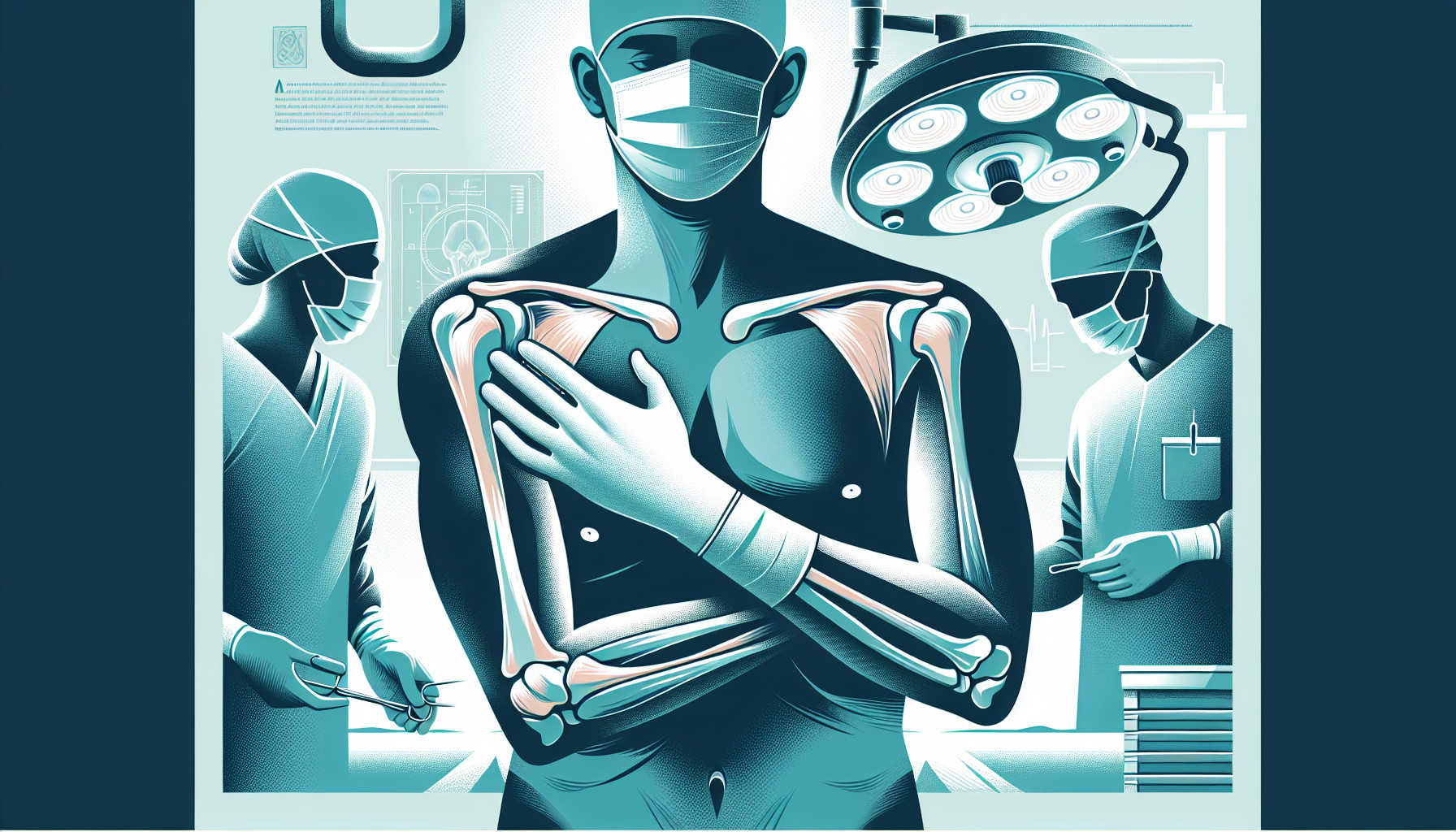Our Summary
This research paper discusses the use of serum inflammatory markers, which are substances in the blood that can indicate inflammation or infection. These markers are often used to check for infections after orthopedic surgery, such as operations on joints like the hip or knee. However, there isn’t as much information on how useful these markers are after shoulder surgery. The study notes that these markers seem to be less effective at diagnosing infections after shoulder surgery compared to hip or knee surgery, possibly because the types of bacteria usually found in the shoulder are less aggressive. It also mentions that we don’t know as much about how these markers behave after shoulder surgery compared to after hip or knee operations. The researchers suggest that a better understanding of these markers in the context of shoulder surgery could improve their usefulness in diagnosing and managing infections after such surgeries.
FAQs
- What are serum inflammatory markers used for in orthopaedic surgery?
- Why is there worse diagnostic performance in the shoulder compared to the hip and knee in terms of infections?
- How could the understanding of serum inflammatory markers in the shoulder enhance the diagnosis and management of infection following elective shoulder surgery?
Doctor’s Tip
One helpful tip a doctor might tell a patient about shoulder replacement is to closely follow post-operative instructions and attend all follow-up appointments. This will help ensure proper healing and monitor for any signs of infection or complications. It is also important to communicate any concerns or changes in symptoms to your healthcare provider promptly. Additionally, maintaining a healthy lifestyle, including proper nutrition and regular exercise, can help support overall recovery and long-term success of the shoulder replacement.
Suitable For
Patients who are typically recommended for shoulder replacement surgery include those with severe shoulder arthritis, rotator cuff tears that cannot be repaired, severe fractures of the shoulder joint, or failed previous shoulder surgeries. These patients typically experience chronic pain, limited range of motion, and decreased quality of life due to their shoulder condition. Shoulder replacement surgery can help alleviate symptoms and improve function in these patients.
Timeline
Before shoulder replacement:
- Patient consults with orthopedic surgeon to discuss options for shoulder pain and dysfunction.
- Patient undergoes pre-operative evaluations, such as blood tests, imaging studies, and physical therapy.
- Surgery date is scheduled and patient receives pre-operative instructions.
- Patient undergoes shoulder replacement surgery under general anesthesia.
- Post-operative pain management and physical therapy are initiated to aid in recovery.
After shoulder replacement:
- Patient stays in hospital for a few days for monitoring and rehabilitation.
- Patient is discharged home with instructions for wound care, pain management, and physical therapy exercises.
- Patient continues physical therapy to regain strength and range of motion in the shoulder.
- Follow-up appointments with the orthopedic surgeon are scheduled to monitor progress and address any concerns.
- Over time, the shoulder should improve in function and pain relief should be achieved.
- Long-term follow-up may be needed to monitor for any complications or need for revision surgery.
What to Ask Your Doctor
- What are the potential risks and complications associated with shoulder replacement surgery?
- How long is the recovery process and what can I expect in terms of pain management?
- What type of shoulder replacement surgery is recommended for my specific condition?
- How long can I expect the shoulder replacement to last?
- What type of physical therapy and rehabilitation will be necessary post-surgery?
- How will the surgery affect my range of motion and strength in the shoulder?
- What are the signs and symptoms of infection following shoulder replacement surgery?
- How often should I follow up with you after the surgery?
- Are there any restrictions or limitations on activities or movements I should be aware of after the surgery?
- What are the alternatives to shoulder replacement surgery and when would they be considered?
Reference
Authors: Ricchetti ET. Journal: Arthroscopy. 2021 Jan;37(1):83-85. doi: 10.1016/j.arthro.2020.10.046. PMID: 33384103
